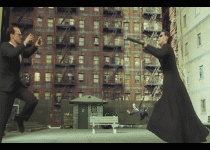Video Interview with Bee Wilson
上一篇 / 下一篇 2008-11-14 00:40:11 / 个人分类:食品教育
查看( 222 ) /
评论( 3 )
TAG:
-
 lanbo78
发布于2008-11-11 14:52:36
lanbo78
发布于2008-11-11 14:52:36
-
TEXT OF INTERVIEW
Tess Vigeland: Over the weekend, details emerged from an interview that Chinese Premier Wen Jiabao did with Science Magazine last month. He said his government shared responsibility for the tainted milk incident in China that killed four infants and sickened thousands.
Melamine, a chemical in plastic, was being used in various dairy products. Unfortunately, the adulteration of food isn't new. Author Bee Wilson writes about the history of what she calls "food fraud" in her new book, "Swindled."
Welcome to the program.
Bee Wilson: Thank you.
Vigeland: When you read about something like the milk scandal in China, you kind of can't help but ask yourself why would anyone intentionally put harmful stuff in food, especially food that's being given to kids.
Wilson: This is the sort of thing, which you see happening a lot where there are very low economic margins. Obviously, you've also got to have a society, as with modern-day China, where you've got the opportunities for swindling, and, unfortunately, they haven't yet got the kind of regulatory system in place that prevents it from happening. And the really scandalous thing, as well, about the current dairy scandal in China is that it's following hot on the heels of a previous scandal, which I wrote about in my book, from 2004, where there was a whole industry making fake infant formula from pretty much nothing but sugar and starch. And this wasn't just a few bad apples, you know, just a few rogue individuals who happened to be evil doing it. It was being made in 141 different factories in China.
Vigeland: Well we're talking here about situations in 2008 and 2004, but as you point out food fraud has really been going on really throughout the ages. What's one of the more egregious examples from the last 100 years or so?
Wilson: One that really recalls the current China scandal is the swill-milk scandal that was happening in New York and San Francisco and Chicago and plenty of other American cities in the 1850s, 1860s. People were keeping cows in stables attached to distilleries and, instead of feeding them something wholesome like grass, they were feeding the leftover hot alcoholic mash made for making liquor. So effectively, we're talking about here alcoholic cows who are producing alcoholic milk, which is again being marketed for children.
Vigeland: Well, when did officials kind of finally start paying attention to what was going in food that was being manufactured?
Wilson: It took a long time. It takes a whole culture shift for these things to change. And it took a lot more scandals. I mean, one of the most famous examples, which a lot of people will have read in high school, is Upton Sinclair's book "The Jungle," which really led to the Pure Food and Drugs Act of 1906, which was the first proper federal law addressing the problem for all of the states.
Vigeland: Well, I have to ask you: how do you go out to dinner, how do you go to the grocery store and trust that what you're getting there is safe?
Wilson: I think there's kind of two issues. There's the big cultural political issues. There's a point where this is not something that individuals can protect themselves against. So, we need better government regulation. And as for what you can do as an individual in the grocery story, well, I think so much of it is really common sense, I think. If we can re-acquaint ourselves with the ingredients that go into good food, then you'll know when you're being served a fake. The best protection really against swindling is knowing the real thing.
Vigeland: Bee Wilson, is the author of "Swindled, The Dark History of Food Fraud From Poisoned Candy to Counterfeit Coffee. Thanks so much for joining us and for killing my appetite.
Wilson: Thank you. I'm sorry about that.
-
 sonny123发布于2008-11-12 16:44:44
sonny123发布于2008-11-12 16:44:44
-
how to download ?
-
 lanbo78
发布于2008-11-14 00:38:38
lanbo78
发布于2008-11-14 00:38:38
-
英国专栏作家称,在食品供应手段管理上故意撒手不管的行为,无异于是在向厂商发出造假的邀请
【《财经网》专稿/记者 王欢】“中国2008?不,是纽约市1858。”英国《星期日电讯报》专栏食品评论家比·威尔逊近日在“泔水奶消失了”一文中写道,“中国正在经历的以及正无法避免地向其贸易伙伴传播的灾难(指“毒奶粉事件”),非常怪诞地相似于19世纪困扰纽约几十年的‘泔水奶’丑闻’”。
发生在100多年前的那场“泔水奶”丑闻的始末是这样的:当时城市迅速膨胀,由于缺少足够的冷藏设施,原奶供应很不充足,每天大约只能生产9万夸脱合(1夸脱约合1.14升)的新鲜原奶。但最终投放市场的牛奶,却神奇般地迅速增加到12万夸脱。
导致这种现象的部分原因,就是当时纽约奶厂的工人在原奶里兑水,然后再加入面粉。而奶厂工人在原奶里加的更多的是泔水奶——一种从奶牛中挤出的污浊、浅蓝色状物质的东西。因为当时的奶农将牛养在酒厂附近,用制造威士忌酒剩下的带有酒精成分的热乎乎的下脚料拿来喂牛,结果就出现了这种不干净的“蓝色牛奶”。
为了祛除这种牛奶里的蓝色物质,奶农首先在牛奶里加入熟石膏,然后再加入淀粉和鸡蛋来增加牛奶的浓度,还在牛奶里加入深色糖浆。
当时,报纸揭发泔水奶一年内造成了8000名儿童死亡。当时,政府也曾派人调查泔水奶一事,但调查员在奶厂与牛奶商喝起了酒,痛饮数杯后,就做出结论,认为泔水奶和普通牛奶并无二致,喝了对儿童有好处,而且还声称,谁不喝泔水奶,谁就是有偏见。
威尔逊今年还出版有一本新著《诈骗:食品欺诈的黑暗历史,从毒糖果到假冒咖啡》,其中特别分析了政府的放任自流政策正是导致食品造假的罪魁祸首。
他认为,追查食品造假丑闻的先驱是德国化学家Frederick Assum,他在1820年出版了《论食品造假和厨房毒药》一书。不过,无论这名化学家如何在书中苦口婆心地劝诫大家擦亮眼睛,看清现代工业城市出售的几乎所有食品和饮品,其实并不像其看上去的那样品质纯正,而可能致消费者于死地,但在当时,食品造假是可被原谅的,因为自由贸易是增强国力、获得商业成功的不二法则,而如果颁布新的食品监管法令,只会给市场带来意想不到的后果。
“于是,最好就是什么都别做。让其放任自流吧。就像重商主义者说的,把政府赶到贸易的大门之外。”威尔逊在他的这部新作中无奈地戏谑道——工业化、放任自流的政治以及全球化都是损害食品质量的罪魁祸首。
在“泔水奶消失了”一文中,威尔逊写道,要使食品生产和销售规范让中国民众习惯性地放心,中国还有许多事情要做,还有很长的路要走。纽约的泔水奶丑闻横行了50年、待食品监管法律和手段得到强化后才获解决。但直到今天,美国的食品供应也还是弊病重重,比如,今年人们就在食品中发现了令人恐慌的沙门氏菌。人们应该谨记的是,现在发生的要比过去发生的严重得多。在食品供应手段管理上故意撒手不管的行为,无异于是在向厂商发出造假的邀请。虽然政府开始着手调查了,但对那些已经患病的婴儿来说,实在是太迟了。■
本文来自: 中国经济学教育科研网论坛(http://bbs.cenet.org.cn) 详细出处参考:http://bbs.cenet.org.cn/dispbbs. ... D=399256&page=1
标题搜索
日历
|
|||||||||
| 日 | 一 | 二 | 三 | 四 | 五 | 六 | |||
| 1 | 2 | 3 | 4 | 5 | |||||
| 6 | 7 | 8 | 9 | 10 | 11 | 12 | |||
| 13 | 14 | 15 | 16 | 17 | 18 | 19 | |||
| 20 | 21 | 22 | 23 | 24 | 25 | 26 | |||
| 27 | 28 | 29 | 30 | 31 | |||||
我的存档
数据统计
- 访问量: 7391
- 日志数: 34
- 图片数: 4
- 建立时间: 2007-06-19
- 更新时间: 2009-09-04
